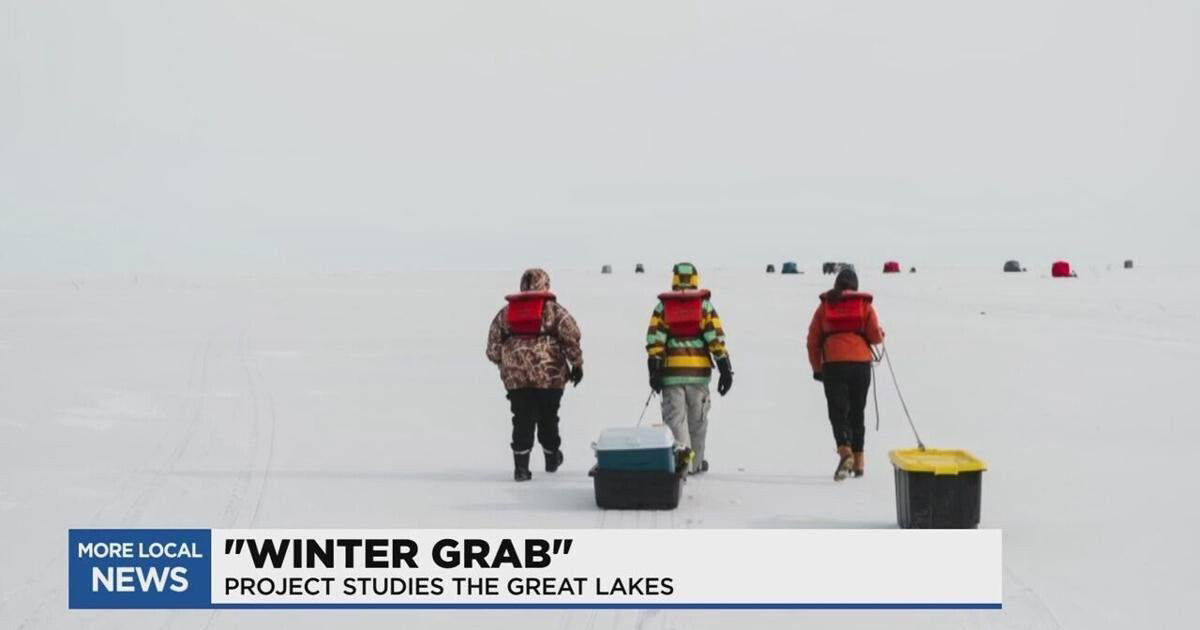‘Winter Grab’ study collects evidence from Great Lakes

Scientists are collecting evidence from the Great Lakes to learn more about its activity during the winter. Many believe that the lakes and wetlands go dormant during colder weather
By TREVOR SOCHOCKI, ANNA MUCKENFUSS
Click here for updates on this story
Michigan (WNEM) — Scientists are collecting evidence from the Great Lakes to learn more about its activity during the winter.
Many believe that the lakes and wetlands go dormant during colder weather, but the project hopes to show otherwise.
Joining the ice fishermen on the white landscape of the lakes are two dozen scientists from universities in Canada and the US.
It’s the first project of this scale and is called the “Winter Grab.”
“I think it’s long overdue because we know so little about what takes place in the wintertime. And you just can’t, you know you can’t understand the system part of the time,” said Don Uzarski, from the CMU Institute for Great Lakes Research.
His team, and plenty others, took snowmobiles, sleds, and an airboat last week to collect ice and water samples from the frozen tundra.
“The lakes are warming and especially the northern lakes, they’re warming, they’re some of the fastest warming freshwater systems in the world,” Uzarski said.
The previous thinking was that the lakes and coastal wetlands went dormant during the winter, but early evidence shows the opposite is true.
“There is a unique assemblage of animals and plants under the water that are thriving during this time, and they have a far-reaching effect in the sense that what happens under the ice can influence what eventually happens in the summer, believe it or not,” Uzarski said.
CMU Aquatic Ecology Professor Hunter Carrick and his team are measuring photosynthesis by looking at the number of phytoplankton in the water.
“It’s a dream team, so to speak, coming together to, to put this, to put ourselves forward and try to get ahead of the curve of understanding changing climate and how it affects the ecology of our great lakes,” Carrick said.
The plan is for the whole team to write and publish a peer reviewed paper on their findings within the year.
Please note: This content carries a strict local market embargo. If you share the same market as the contributor of this article, you may not use it on any platform.